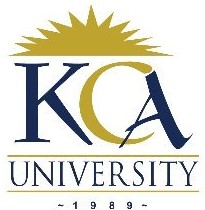
UNIVERSITY EXAMINATIONS: 2011/2012
YEAR 2 EXAMINATION FOR THE BACHELOR OF SCIENCE IN
INFORMATION TECHNOLOGY
BIT 2107 OBJECT ORIENTED ANALYSIS AND DESIGN
DATE: APRIL 2012 TIME: 2 HOURS
INSTRUCTIONS: Answer Question One and Any other Two Questions
QUESTION 1: 30 MARKS (COMPULSORY)
a) Define the term “Object-Oriented Paradigm” [2 Marks]
b) Discuss two reasons that necessitated the shift from Structured System Analysis and Design to
Object-Oriented Analysis and Design. [4 Marks]
c) Discuss any four advantages of Object-Oriented Paradigm. [4 Marks]
d) Using the example of a “bank account” and with the help of a UML diagram describe the
following. [8 Marks]
i. An object
ii. A class
e) Describe UML and the relevance of modeling in Object-Orientation. [6 Marks]
f) A customer makes an order for a product in the inventory. There are two types of customers in the
inventory system: “corporate customers” as well as “Personal customers”.
Required, from the narrative above
i. State the two relationships [1 Mark]
ii. Draw a class diagram [5 Marks]
QUESTION 2: 20 MARKS
a) Define the following terms [3 Marks]
i. Attribute
ii. Method
iii. Behavior
b) Differentiate between an activity and an action [4 Marks]
c) Using an appropriate example, and in UML describe the concept of overriding [6 Marks]
d) The terms visualization and documentation are some of the elements achieved via the use of UML.
Explain what the meaning of these two terms. [4 Marks]
e) By use a suitable example, describe the concept of multiple inheritance. [3 Marks]
QUESTION 3: 20 MARKS
a) Differentiate between a model and a diagram [4 Marks]
b) Describe what a class diagram is, explaining when it is appropriate. [3 Marks]
c) By use of appropriate examples and in UML, define the following relationships [9 Marks]
i. Association
ii. Inheritance
iii. Aggregation
d) State and explain two benefits and costs of inheritance [4 Marks]
QUESTION 4: 20 MARKS
a) Read the following narrative then answer the questions that follow
A student is registered once his certificates have been verified to conform to the admission criteria for
the university admission. After that a student is either on session, on academic leave or graduate. A
student is on session once he is registered for a new semester and has paid the full fees for tat semester,
otherwise on academic leave once the leave application has been granted. A graduate student is one
who has successfully completed all the required course units, has passed and finished all the fee
requirements.
i. Describe a state diagram [2 Marks]
ii. Draw a state diagram [6 Marks]
b) Discuss the concept of abstraction stating its importance in Object-Orientation [2 Marks]
c) Differentiate between the terms “interface” and “implementation” as used in Object-Orientation.
[4 Marks]
d) Describe the following terms stating the relationship between them [6 Marks]
i. Object-Oriented Analysis (OOA)
ii. Object-Oriented Design (OOD)
iii. Object-Oriented Programming (OOP)
QUESTION 5: 20 MARKS
a) Read the following scenario and answer the questions that follow
A video library stocks the both DVDs and video tapes. When a potential client visits the shops, the
librarian checks in the database to establish whether the client is registered or not. If the client is not
registered, he/she is advised by the librarian to register with the library first before any services could
be rendered. Once a client has been registered, he/she is eligible to borrow at most one library item per
week. The item borrowed must be returned before any other item can be borrowed. If the client does
not return the item within a month, he/she is surcharged a certain amount per day up to the time he/she
returns the item. Required:
i. Describe what a use case is. [2 Marks]
ii. Show that notation used in a use case [2 Marks]
iii. Identify the actors in the scenario above [3 Marks]
iv. Draw a use case diagram to model the video library system. [6 Marks]
b) From the scenario described in 5a) above, draw a sequence diagram. [7 Marks]